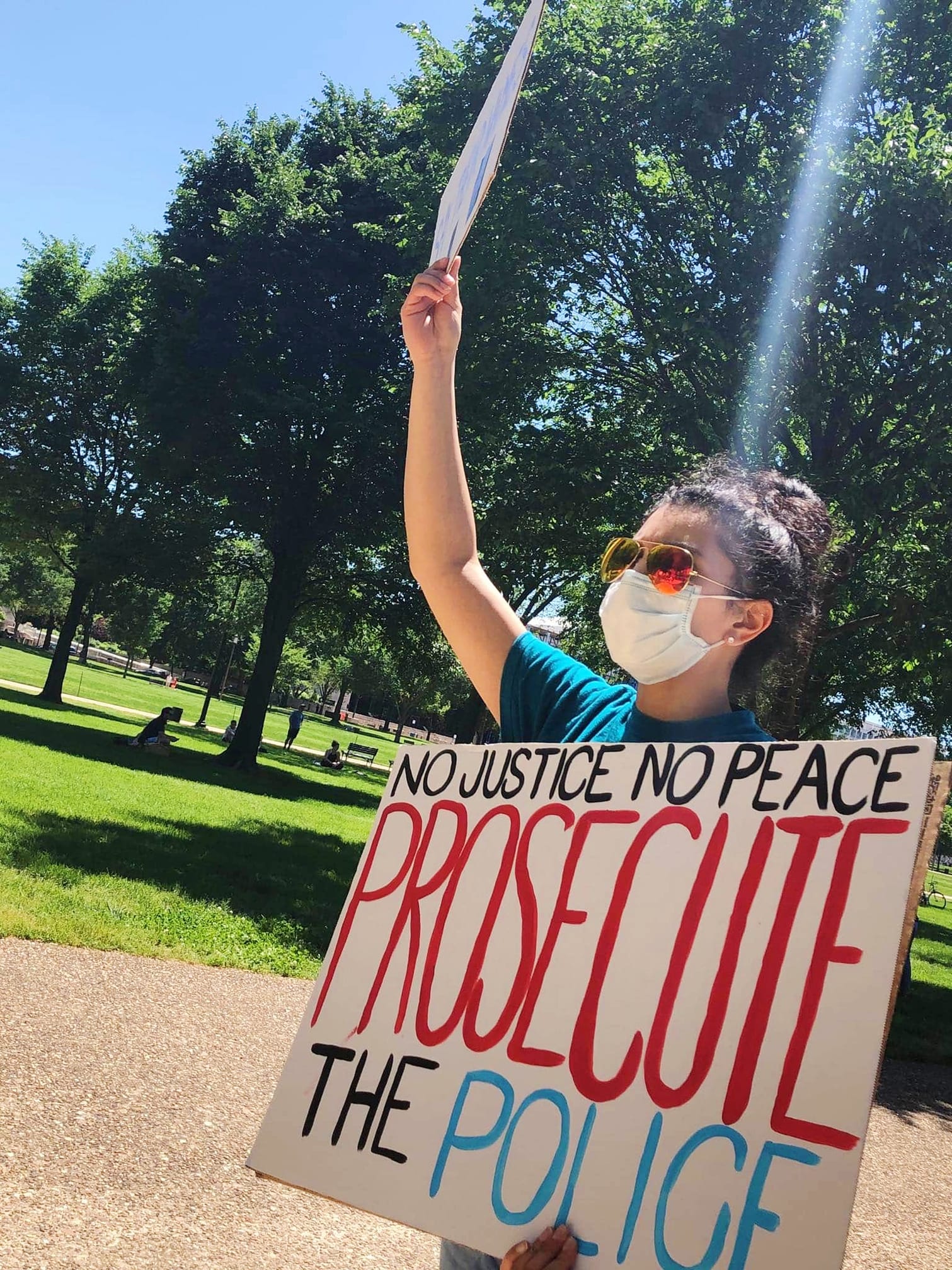
We chatted with American healthcare worker Payal to discuss COVID, masks, and healthcare in the U.S. during the pandemic. It’s abundantly clear that the U.S. has handled COVID-19 very poorly. As we have been watching the U.S. from Jordan for the past six months, we were eager to hear from someone on the front lines there.
Payal is a Medical Assistant at a health clinic in Fairfax, Virginia, USA. She has been working tirelessly to serve patients during the outbreak of COVID-19 in the United States.
“After COVID-19 hit in March, my work as a Medical Assistant at the clinic became more hectic and I received panicked phone calls from patients at the clinic. Initially, we were receiving patients at our clinic but would only hold a maximum capacity of three patients at a time. But in April, our clinic completely shut down and we transitioned to telemedicine. Doctors in the US are mostly from older generations and are not technologically savvy, leaving this older generation of doctors to be ill-prepared when it comes to telemedicine.”
I am only a Medical Assistant, but since COVID-19, I have had to handle patient finances with insurance companies since many will not cover the cost of COVID-19 treatment. American health care workers across the country have to fill in the gaps within hospitals and clinics due to shortages of staff and resources. For example, doctors not trained in emergency medicine have stepped in to treat COVID-19 patients in emergency settings.
Hospitals need more PPEs and are currently running low on medical supplies. During the first wave, there was panic over the lack of masks in hospitals, but still, this issue has never been solved. Due to hospitals reaching maximum capacity, many people have lost their lives. It has been really sad to see our patients lose family and friends to COVID-19.
Further, COVID-19 is disproportionately affects black and brown communities. These communities are unable to receive the medical attention and services they need. After COVID-19, it is more apparent than ever that institutional racism is prominent in the US healthcare system.
The media is not displaying the correct information regarding COVID-19. The media stated in March that COVID-19 cases would decrease during the summer months, yet this was not based on medical data since viruses do not necessarily die from heat. The media no longer covers COVID-19 like they did before and has moved on to new topics such as Kim Kardashian becoming a billionaire.
From a medical perspective, the protests probably did increase the number of cases. But according to media studies, the protests did not contribute to an increase in cases. My clinic treats mostly elderly patients so I did not witness any COVID-19 cases from protesters. I participated in the Washington D.C. protests myself, advocating for Black Lives Matter and to end police brutality. While protesting, I saw people wearing masks and using hand sanitizer.
Many states reopened public spaces too early and were unprepared for the next wave of cases, which we are experiencing now. I don’t see why we need to reopen public spaces simply to re-boost the economy. After all, the economy is not more important than saving human lives. Therefore, we need to elect a new president that works collaboratively with world leaders to end COVID-19, rather than focusing on nuclear threats.
The United States has always emphasized the idea of individualism, which has led Americans to think of themselves during COVID-19 rather than combatting this virus as united citizens. We need to humble ourselves and learn from other countries’ successful preventative measures in order to combat COVID-19.
Thank you to all the health care workers around the world serving their citizens' needs and saving lives during this deadly pandemic.